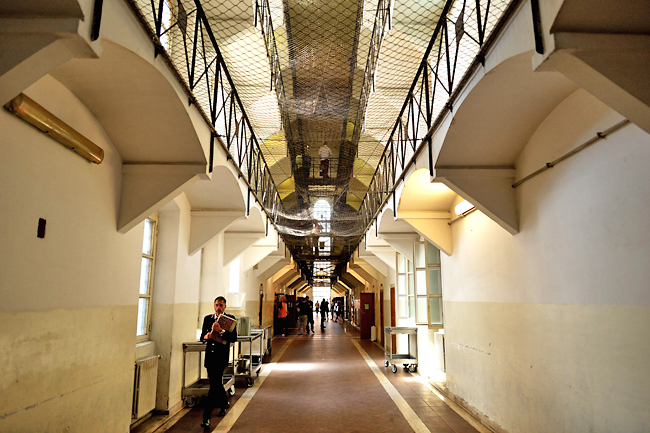ROME (AFP) – Traces of black soot still mark the facade of the Regina Coeli jail, a reminder of the latest riots in Rome’s infamous lock-up – now emblematic of long-standing troubles plaguing Italy’s prison system.
A steady stream of women, some with eyes swollen from crying, pass through the visitor’s entrance of the crumbling edifice, where on any one day more than 1,150 men are crammed into a facility designed for just 628.
A short walk from tourist-thronged bars and restaurants in the leafy Trastevere district, Veronica Giuffrida, 31, sits on a steel bench holding her toddler, awaiting the weekly visit with her incarcerated father, the child’s grandad.
“They lack everything. The hot water doesn’t work. The electricity doesn’t work. They’re just abandoned,” she told AFP. “It’s a jungle inside,” she said.
A guard emerges from inside for a quick break. While not authorised to talk, he confirmed, “No-one who’s not inside could ever understand. It’s indescribable.” Regina Coeli is a teeming microcosm of the major problems plaguing Italy’s prison system today – severe, systemic overcrowding and rising suicide rates. They’ve festered for decades as past governments – both left and right – have resorted to ad hoc measures without tackling tough structural problems.
Similar challenges are seen elsewhere in Europe. But despite far-right Prime Minister Giorgia Meloni vowing to fix Italy’s prisons, observers said they’ve got worse.
Court delays and slow procedures nationwide mean too many suspects linger in pre-trial detention, and hamper early release efforts. Inmates with mental illnesses or drug addictions – or both – pack prisons because facilities to treat them lack space. So far this year, 77 inmates and seven guards have taken their lives.
Foreigners represent about a third of inmates, many of them in precarious social circumstances that make them ineligible for house arrest. “Today prisons are a large container where everything ends up… a sort of welfare system for society,” head of the UILPA prison guards’ union Gennarino De Fazio told AFP. “When you don’t know how to treat an individual or where, he ends up in prison, in one way or another.”




















































